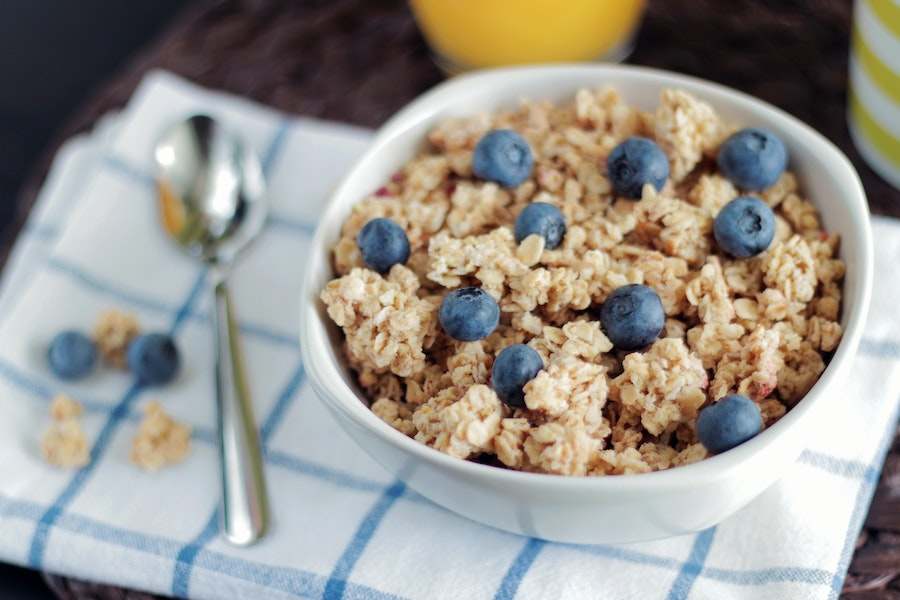Oatmeal is touted as the perfect, healthy breakfast food – but can it cause bloating? It’s a common concern for many, as bloating can be uncomfortable and even embarrassing. Many people wonder if it’s safe to eat oatmeal. Fortunately, understanding the science behind it can help explain why oatmeal may cause bloating and what you can do to prevent it. Oatmeal is a popular and versatile food that is a good source of dietary fiber, and it is thought to be beneficial for digestive health. But the combination of ingredients in oatmeal can also cause bloating in some people, especially those who are sensitive to certain types of food. By understanding the science behind oatmeal and bloating, we can better understand why it might cause bloating and what we can do to prevent it.
Does Oatmeal Cause Bloat?
Yes, oatmeal can cause bloating in some people. This is because oatmeal is high in fiber, and for certain people, fiber can be difficult to digest. Eating a lot of fiber can cause gas and bloating as the body struggles to break it down. It’s important to note that not everyone will experience bloating from eating oatmeal, as it all depends on the individual’s digestive system.
What Causes Bloating?
- Eating Too Fast – Eating too quickly can cause air to be swallowed, which can lead to bloating.
- Not Chewing Thoroughly – Not chewing your food thoroughly enough can cause it to be poorly digested, leading to indigestion and bloating.
- Eating Processed Foods – Processed foods often contain additives and preservatives that can be difficult for the body to break down, leading to bloating and other digestive issues.
- Eating Too Much Fiber – While fiber is an important part of a healthy diet, eating too much of it can cause bloating in some people.
- Drinking Carbonated Beverages – Carbonated beverages contain carbon dioxide gas, which can cause bloating when swallowed.
- Eating Dairy Products – Dairy products such as milk, cheese, and yogurt contain lactose, a type of sugar that some people are unable to digest properly, leading to gastrointestinal discomfort and bloating.
- Eating Cruciferous Vegetables – Cruciferous vegetables such as broccoli, cauliflower, and Brussels sprouts contain a complex sugar called raffinose that some people are unable to digest, leading to bloating.
- Eating Too Much Salt – Consuming too much salt can cause the body to retain water, leading to bloating.
- Eating Too Much Sugar – Eating too much sugar can cause fermentation in the digestive tract, leading to bloating.
- Not Drinking Enough Water – Not drinking enough water can cause constipation, which can lead to bloating and discomfort.
The Science And Research Behind Oatmeal And Bloating
- Research on oatmeal and bloating is limited, but some studies suggest oatmeal may cause bloating in some people. One study found that steel-cut oats were more likely to cause bloating than quick-cooking oats.
- Another study found that those with gluten sensitivity may experience more significant bloating when eating oatmeal, as oats are naturally gluten-free. Additionally, a study published in the journal Nutrition Research & Practice found that those with FODMAP sensitivity may experience more significant bloating from oatmeal due to its high FODMAP content.
- Oats are rich in fiber, which is thought to be a key factor in why oats may cause bloating. Fiber is indigestible, but it has many health benefits. It has been shown to positively impact the gut microbiome and prevent constipation and other digestive diseases. However, fiber is also known to cause bloating when it reaches the large intestine.
- Bloating can be caused by gas produced during the digestion of dietary fiber. Oats are a good source of fiber, which is why they are often recommended as a healthy breakfast food. However, excessive amounts of fiber can cause bloating. Oatmeal is high in FODMAPs as well as dietary fiber, which is why it can cause bloating in some individuals.
What Ingredients In Oatmeal Could Cause Bloating?
- Some of the ingredients in oats may cause bloating, including dietary fiber, oligosaccharides, and FODMAPs. Dietary fiber: Oats are a good source of dietary fiber, which has been shown to promote digestive health.
- The recommended daily intake of fiber is about 21 grams per day for adult men and about 15 grams per day for adult women.
- Fiber can cause bloating when it reaches the large intestine, where it ferments and produces gas.
- Bloating can be caused by the excessive intake of FODMAPs, a type of carbohydrate found in oats. In individuals who have a sensitivity to FODMAPs, a high intake of dietary fiber can cause bloating.
Alternatives To Oatmeal
- If you experience significant bloating from eating oatmeal, it may be helpful to look for alternative breakfast foods.
- Many other healthy breakfast foods are rich in fiber but less likely to cause bloating, such as whole-grain bread and high-fiber cereal. If you have a sensitivity to FODMAPs, you can look for foods that are low in FODMAPs, such as rice, quinoa, lentils, and beans.
- You can also consider eating oatmeal that has been specially processed to reduce the number of FODMAPs it contains.
How To Prevent Oatmeal-Related Bloating?
- Start slowly: If you’re new to eating oatmeal, start by eating small amounts and gradually increase the amount over time.
- Choose gluten-free oats: Oats are naturally gluten-free, but some brands may be contaminated with gluten during processing. To avoid this, choose oats that are labeled gluten-free.
- Limit FODMAPs: Oats are high in FODMAPs, which can cause bloating in some individuals. Choose low-FODMAP varieties of oats or limit your intake of other high-FODMAP foods when eating oatmeal.
- Soak oats overnight: Soaking oats overnight can help reduce the amount of FODMAPs they contain and make them easier to digest.
- Add spices: Adding spices such as cinnamon or ginger to oatmeal can help reduce bloating caused by gas production during digestion.
- Avoid sweeteners: Artificial sweeteners can cause bloating in some people. Avoid adding any sweeteners to your oatmeal and opt for natural sweeteners such as honey or maple syrup instead.
- Choose a low-fiber variety: Steel-cut oats are higher in fiber than rolled oats, so if you’re prone to bloating, opt for rolled oats instead.
- Add probiotic foods: Adding probiotic-rich foods such as yogurt or kimchi to oatmeal can help improve digestion and reduce bloating.
- Drink plenty of water: Drinking plenty of water throughout the day can help keep your digestive system running smoothly and may reduce bloating caused by gas production during digestion.
- Exercise regularly: Regular exercise can help improve digestion and reduce bloating caused by gas production during digestion.
Conclusion
Oatmeal is a versatile and healthy breakfast food, but it can cause bloating in some individuals. Bloating can be caused by excessive intake of dietary fiber and FODMAPs, which are both found in oats. Bloating can be uncomfortable and embarrassing and can make it difficult to fit comfortably into your clothes. To reduce the chance of experiencing oatmeal-related bloating, choose the right type of oats and add foods rich in prebiotics. While oatmeal is a healthy breakfast food, it may cause bloating in some people. By understanding the science behind it, we can better understand why it might cause bloating and can take steps to prevent it.








